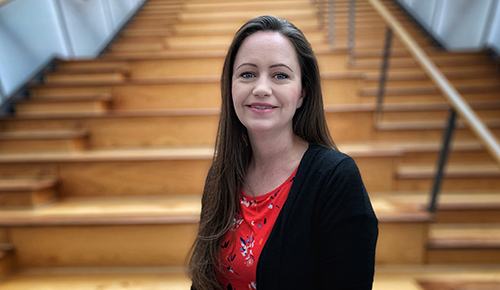
Carmen Rasmussen has been in her role as director of postdoctoral fellowships for the Department of Pediatrics for a year.
The goal of the postdoctoral fellowship program is to help trainees eventually set up their own lab or to be appointed in an academic position. It can also be a step between a PhD and a different career path. "Many go on to other careers that aren't necessarily academic. The postdoc position allows them to work with an expert in an area that they have some skills in. But they want to develop more skills and to learn more about this research area," says Carmen Rasmussen, director of postdoctoral fellowships for the Department of Pediatrics.
Rasmussen took on a new role of overseeing the department's postdoc program in January 2019. She decided the position would be a great opportunity to give back to the department and the fellows. "I saw it as a way to hopefully help out and be someone who could provide some guidance and support. I'm always wanting to help others reach their potential," she says. Rasmussen would like to raise the profile of postdocs and help them get more recognition for their work. In addition to conducting innovative research and publishing their findings, they also contribute to teaching and work with graduate students.
Postdocs often are working in labs all across campus and can feel isolated from the main activities in the department. To help build community and a peer support network, Rasmussen invited postdocs to three lunches in 2019. The purpose of the informal gatherings is to provide that opportunity to meet each other and learn more about the support Rasmussen and program administrator Trish Kryzanowski can offer in the department.